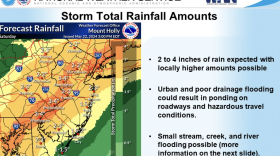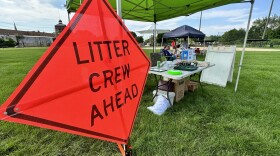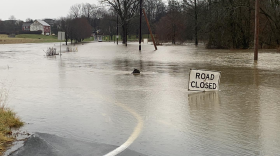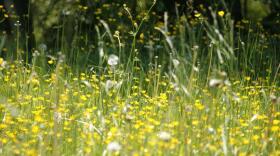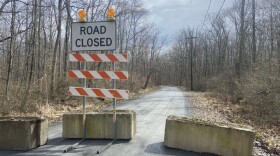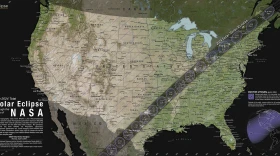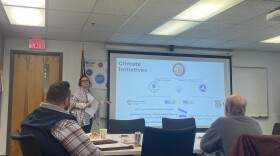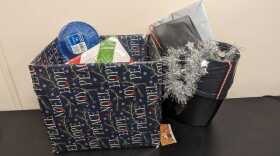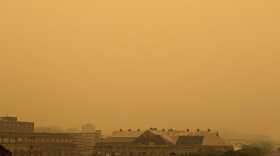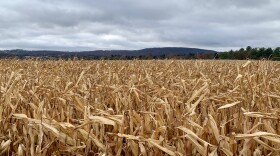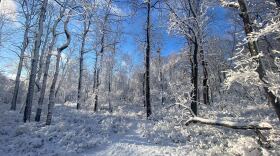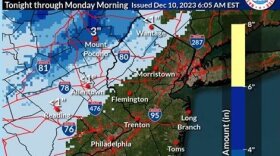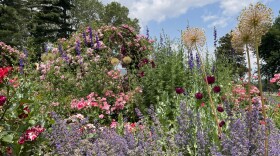-
Philadelphia set a record Saturday with its wettest March day on record, eclipsing 3 inches just before 2 p.m. The Lehigh Valley didn't get quite that much, but set a record of its own for the day, according to the National Weather Service.
-
Take a look at stories that ran throughout the week of which we are most proud, had a profound impact on readers or that you might want to look at again.
-
While not federally recognized, residents across the country for the last half-century have acknowledged Earth Day by demonstrating for more environmental protections, cleaning up their communities or learning more about the planet they call home through educational initiatives.
-
When excessive rain falls, the Lehigh Valley can see flooding of rivers, creeks, streams and other low-lying and flood-prone locations. These area roadways are usually impacted.
-
The Lehigh Valley is under a flood watch in effect from late Friday through Sunday morning, with excessive rainfall on the way and gusty winds following the storm that could result in power outages.
-
A coastal system is expected to bring heavy rain to the Lehigh Valley and much of the region this weekend, prompting concerns of flooding and power outages.
-
The Asthma and Allergy Foundation of America released its Allergy Capitals report this month. Allentown ranked in the Top 15 nationwide.
-
Late Tuesday marks the astronomical beginning of the spring season in the Northern Hemisphere, but forecasters say winter isn’t quite done with us yet.
-
A section of Institute Drive will be closed through most of April to protect breeding amphibians. Experts said the road-closing conservation effort is not only important for the animals, but also for the region’s overall landscape and ecosystem.
-
According to experts, the only way to view the total eclipse on April 8, 2024, is to be inside the 120 mile-wide path of totality. Outside of it, you won't have nearly the same experience.
-
The Lehigh Valley Planning Commission at 11 a.m. on Wednesday is holding a meeting at its Allentown office to brainstorm and prioritize ways to decarbonize transportation across the region. Decarbonization is the process of reducing or eliminating carbon dioxide emissions.
-
Many spots could receive 2 to 3 inches of rain, forecasters warn, with areas of flooding possible Sunday night as another coastal storm targets the region.
-
Amid the joy and festivities, environmental advocates are urging residents to keep sustainability in mind during what can be a time of year when trash and waste spikes.
-
State environmental officials on Thursday evening hosted the last of five public engagement sessions, as they work to create a Priority Climate Action Plan, or PCAP, aiming to reduce greenhouse gas emission statewide and mitigate further effects of climate change.
-
Forecasters say another impactful storm is expected to move up the coast, bringing heavy rain and gusty winds to the region Sunday into Monday.
-
The new official map marks recently acquired land, while setting priorities for future desired open space.
-
A Tuesday evening webinar cosponsored by the Bethlehem Area Public Library and Bethlehem Food Co-Op focused on how residents can meaningfully participate in the city’s efforts to fight climate change.
-
The Lehigh Valley remains devoid of accumulating snow events so far in December —and it looks like that pattern will continue straight through the holiday season.
-
Brad Klein reviews the week’s astronomical highlights with Bethlehem’s 'Backyard Astronomy Guy," Marty McGuire.
-
Sunday's rain could transition to snow as the storm system departs the region Monday morning, with the potential to affect the morning commute, according to the National Weather Service.
-
The U.S. Department of Agriculture updated its plant hardiness map, showing a warmer Lehigh Valley. The region has moved into a warmer zone from the one where it was placed more than a decade ago. Experts say it has consequences for plant seasons and species.
-
Take a look at stories that ran throughout the week of which we are most proud, had a profound impact on readers or that you might want to look at again.


